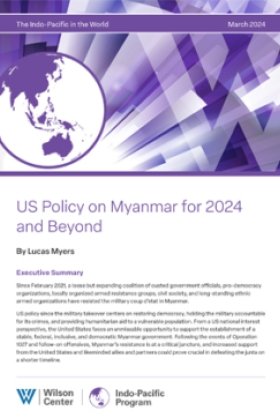#139 Public Policies and Political Regimes in Latin America
By Oscar Oszlak
From the Introduction
This paper analyzes the process of implementing public programs and policies in the light of some Latin American experiences. It attempts to identify the institutional obstacles lying in the way of successful policy implementation. The focus is placed upon the intrabureaucratic dynamics whereby successive positions of the sfate (or policies) are taken with regard to social issues included in the public agenda. It starts out with an examination of certain theoretical assumptions, widely accepted in the specialized literature, in order to contrast the prevailing models and conceptions on policy formulation and execution with the more variegated and complex situations found in the Latin American public sector.
Related Program

Latin America Program
The Wilson Center’s prestigious Latin America Program provides non-partisan expertise to a broad community of decision makers in the United States and Latin America on critical policy issues facing the Hemisphere. The Program provides insightful and actionable research for policymakers, private sector leaders, journalists, and public intellectuals in the United States and Latin America. To bridge the gap between scholarship and policy action, it fosters new inquiry, sponsors high-level public and private meetings among multiple stakeholders, and explores policy options to improve outcomes for citizens throughout the Americas. Drawing on the Wilson Center’s strength as the nation’s key non-partisan policy forum, the Program serves as a trusted source of analysis and a vital point of contact between the worlds of scholarship and action. Read more









